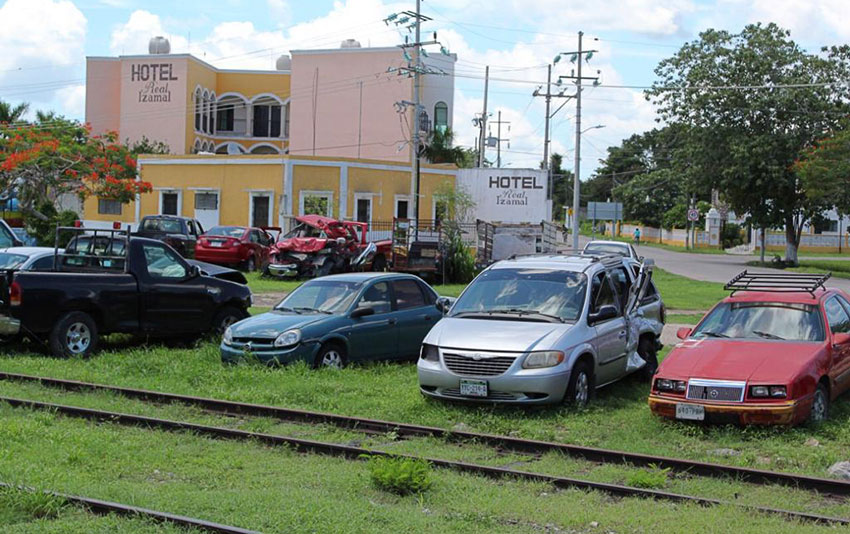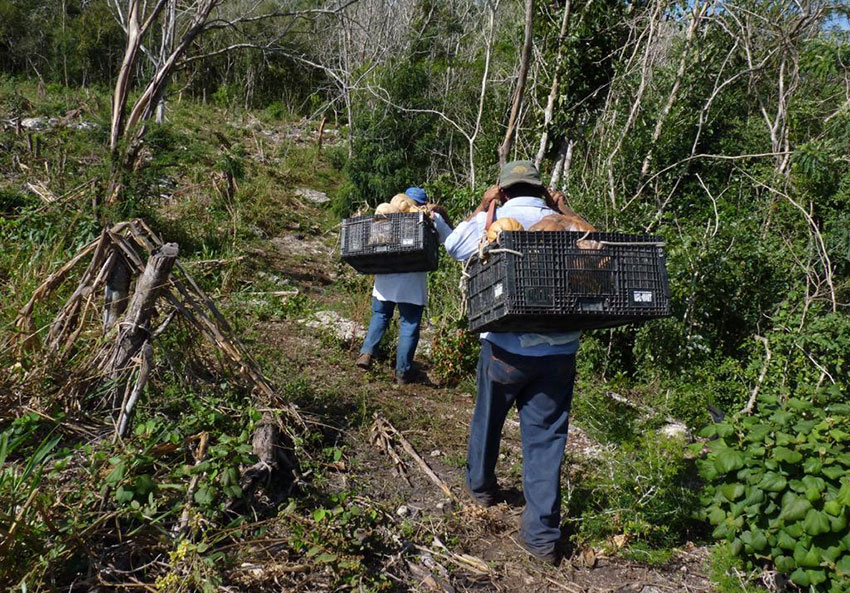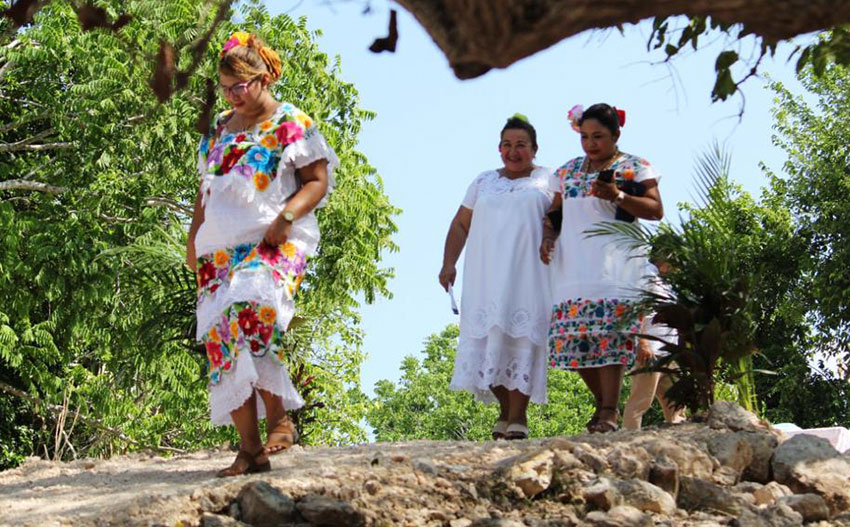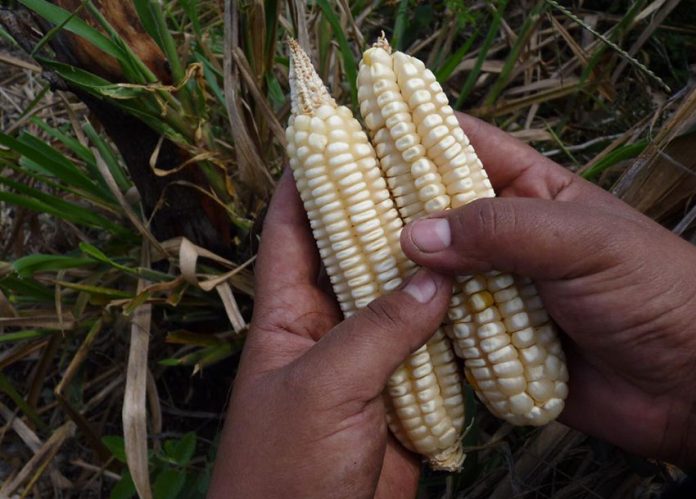“My family and I have lived here for five generations. By making us move, by displacing us … [they] are going to destroy our traditions and our way of life.”
The words are those of Guadalupe Cáceres, a member of the Colectivo Tres Barrios, a group formed to protect the interests of 293 families facing displacement in three neighborhoods in the city of Campeche. Some 2,000 people are being forced to move to make way for President López Obrador’s ambitious Maya Train project.
The government insists that the 165-billion-peso project, funded through public money and private investment, will promote economic and sustainable development in one of Mexico’s poorest regions.
But many communities contend that the project will have a disastrous impact on their culture, livelihoods and land. They say it is also a violation of their rights.
Valiana Aguilar, a member of Assembly of Defenders of the Mayan Territory Múuch’ Xíinbal, which represents Maya communities across the Yucatán Peninsula, told Mexico News Daily that the government is imposing the project upon them.

“The government says that development will improve the quality of life for the communities and they are trying to determine what kind of life we should have. Well, [the train] is a threat to our way of life. Why? Because no one can tell us what a good life is, or what it should be, or what we should aspire to be as people.”
For the Maya communities represented by Múuch’ Xíinbal, their traditional agricultural system – the milpa – is central to their lives. “It is not for nothing that we say we are the women and men of the corn. It is our daily food, but it is not only food; it involves our entire coexistence, it is how we see the world, it is how we feel it,” explained Aguilar.
However, this traditional practice is being impacted by megaprojects – such as industrial pork farms, soy plantations, and solar parks – which are fueling community division, deforestation and land dispossession.
Aguilar said that land grabs have increased in recent years and that the “Maya Train is reinforcing the systematic dispossession of land.”
Maya communities own and manage ejidos, communally-held land traditionally used for the milpa. According to Mexico’s Agrarian Law, ejidos can be sold if they are converted into private property through a “separation process,” requiring consent from all landowners. Nonetheless, communities claim that they are often pressured, manipulated, or deceived into selling their land.
In July, the community of Xcalakdzonot in Yucatán state, located 50 kilometers from one of the proposed train stations, alleges that despite the Covid-19 restrictions, they were visited by a man claiming to represent the international bakery firm Bimbo and two textiles companies. The town’s inhabitants claim that the man attempted to buy 2,078 hectares of ejido land by convincing people to sell for as little as US $0.50 per square meter.

The Agrarian Law also allows the government to expropriate ejido land for public projects, such as train lines, with landowners (ejidatarios) compensated for their loss. However, an investigation by an anti-corruption organization revealed that communities that had their ejidos appropriated in the 1970s for construction of the highway from Cancún to the Belize border are yet to receive compensation.
In Bacalar, Alika Santiago, a member of a Maya women’s collective representing local communities, is also worried that the train will increase land appropriation.
“For us, the Maya Train is a territorial reordering that does not consider the indigenous people. It will strip us of our land,” she said.
The National Tourism Development Fund (Fonatur) wants to incorporate 1,000 hectares of ejido land in Bacalar as part of an urban real estate project that will accompany the train – this in addition to the six hectares it needs for the construction of a station.
The ejidatarios will not sell until certain conditions are met. They are demanding payment for 354 hectares of ejido land, which the government appropriated in 1972. Mostly located on the lakeshore, the land was then acquired by individuals who have built hotels, houses and other infrastructure projects.
Santiago told Mexico News Daily that although some people are willing to sell, many are resisting and believe that the train will not benefit their communities.

“It is clear to us that the project will not benefit us because these [development] initiatives have never benefited us. [These project] have stripped us of our land, our territory and they have deprived us of our plants, biodiversity, and the forest – the forest that gives us life.”
For Santiago and Aguilar, and the communities they represent, the train is also a violation of indigenous rights because a public consultation was carried out improperly.
The referendum saw 92% of people vote in favor of the project but just 2% of the 3.53 million registered voters in the 84 municipalities voted.
Aguilar explained that instead of informing communities how the project could impact them, government representatives spoke only of its benefits.
“The consultation was a total farce. It was not binding at all. It was a matter of promoting the train. They did not consult all the communities and there was no information on the impacts.”
Communities in Yucatán, Quintana Roo, Campeche and Chiapas have since filed lawsuits in the federal courts, claiming that the project is a violation of multiple human rights recognized in Mexico’s Constitution and international treaties.
While some of these legal claims are still pending, many others have been rejected.
In April, Colectivo Tres Barrios filed an injunction to stop their eviction, but the court rejected the claim. Now it is waiting for a response to an appeal submitted in August. Still, Cáceres said at a press conference that they continue to live in “uncertainty, fear and anxiety.”
Courts in Yucatán have also rejected four lawsuits filed by Múuch’ Xíinbal.
“This means that the courts and the judges are on the side of the government. They are on the side of the train. It is clear to us, but that does not mean that we will stop our struggle,” Aguilar said.
Turning to international mechanisms, the Indigenous Governing Council, a national organization that represents the interests of indigenous peoples, filed a complaint in August with the Inter-American Commission on Human Rights for violating indigenous peoples’ rights with five megaprojects, including the Maya Train. The commission’s decision is currently pending.
Mexico News Daily
